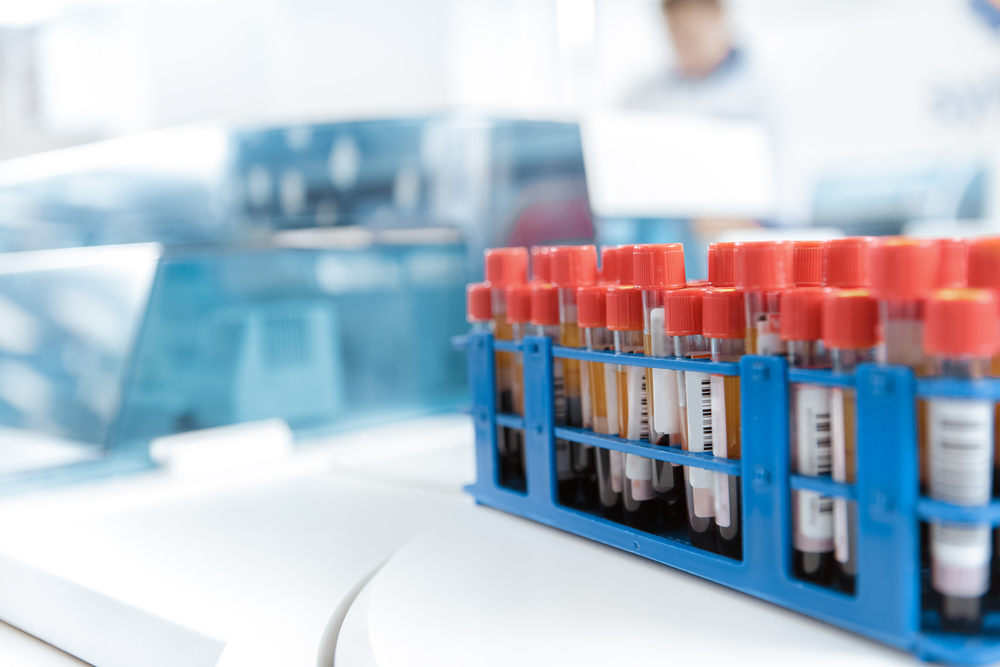Vtamin B12 Deficiency: Understanding Causes, Symptoms, and Treatments

In today's fast-paced world, ensuring that our bodies receive the necessary nutrients is crucial for maintaining overall health and well-being. Among these vital nutrients is vitamin B12, a key player in various bodily functions, including red blood cell formation, neurological health, and DNA synthesis. However, deficiency in this essential vitamin can lead to a range of health issues, making it imperative to understand its causes, symptoms, and effective treatments.
Causes of Vitamin B12 Deficiency
Vitamin B12 deficiency can occur due to several factors, each affecting the body's ability to absorb or utilize this vital nutrient. Some of the primary causes include:
- Dietary Factors: One common cause of vitamin B12 deficiency is a lack of consumption of foods rich in this vitamin. Since vitamin B12 is primarily found in animal products such as meat, fish, eggs, and dairy, individuals following strict vegetarian or vegan diets may be at a higher risk of deficiency unless they consume fortified foods or supplements.
- Gastrointestinal Disorders: Certain gastrointestinal conditions, such as pernicious anemia, Crohn's disease, celiac disease, and atrophic gastritis, can impair the body's ability to absorb vitamin B12 from food. These conditions may damage the stomach lining or affect the production of intrinsic factor, a protein necessary for vitamin B12 absorption.
- Medications: Long-term use of certain medications, such as proton pump inhibitors (PPIs), H2 receptor antagonists, and metformin, can interfere with vitamin B12 absorption by reducing stomach acid production or altering gut bacteria, leading to deficiency over time.
- Age: As individuals age, the risk of developing vitamin B12 deficiency increases. This is often due to decreased production of stomach acid and intrinsic factors, as well as age-related changes in the gastrointestinal tract, which can impair nutrient absorption.
- Surgical Procedures: Surgeries involving the removal of parts of the stomach or small intestine, such as bariatric surgery, can significantly reduce the body's ability to absorb vitamin B12, necessitating lifelong supplementation to prevent deficiency.
Symptoms of Vitamin B12 Deficiency
Recognizing the symptoms of vitamin B12 deficiency is essential for early intervention and treatment. While symptoms can vary from person to person, some common signs include:
- Fatigue and Weakness: Feelings of fatigue and weakness are often early indicators of vitamin B12 deficiency, as this vitamin plays a crucial role in energy production within the body. Individuals may experience persistent tiredness despite adequate rest.
- Neurological Symptoms: Vitamin B12 is essential for maintaining healthy nerve function. Deficiency can lead to neurological symptoms such as tingling or numbness in the hands and feet, difficulty walking, memory problems, and mood changes, including depression and irritability.
- Pale or Jaundiced Skin: In severe cases of vitamin B12 deficiency, individuals may develop pale or jaundiced skin due to decreased red blood cell production and subsequent anemia. Jaundice is characterized by a yellowing of the skin and whites of the eyes.
- Gastrointestinal Issues: Some individuals with vitamin B12 deficiency may experience gastrointestinal symptoms such as diarrhea, constipation, loss of appetite, or weight loss, particularly if the deficiency is caused by underlying gastrointestinal disorders.
- Cognitive Impairment: In addition to memory problems, vitamin B12 deficiency can impair cognitive function, leading to difficulty concentrating, confusion, and even dementia in severe cases if left untreated.
Diagnosis of Vitamin B12 Deficiency
Diagnosing vitamin B12 deficiency typically involves a combination of clinical evaluation, blood tests, and sometimes additional diagnostic procedures. Healthcare providers may consider the following when assessing for deficiency:
- Medical History and Physical Examination: Healthcare providers will review the individual's medical history, including any symptoms suggestive of vitamin B12 deficiency, as well as conduct a thorough physical examination to assess for signs such as pale skin, neurological abnormalities, or gastrointestinal issues.
- Blood Tests: Blood tests, including a complete blood count (CBC) and serum vitamin B12 levels, can help confirm the diagnosis of deficiency. Low levels of vitamin B12 in the blood, along with elevated levels of homocysteine and methylmalonic acid, are indicative of deficiency.
- Additional Testing: In some cases, additional testing may be necessary to determine the underlying cause of vitamin B12 deficiency. This may include tests to assess intrinsic factor antibodies, which can help diagnose pernicious anemia, or imaging studies such as endoscopy or MRI to evaluate gastrointestinal abnormalities.
Treatment for Vitamin B12 Deficiency
Effective treatment of vitamin B12 deficiency typically involves replenishing vitamin levels through supplementation and addressing any underlying causes contributing to the deficiency. Treatment modalities may include:
- Vitamin B12 Supplementation: The primary treatment for vitamin B12 deficiency involves supplementation with oral or injectable forms of vitamin B12. Oral supplements are often sufficient for individuals with mild deficiency or those who can absorb vitamin B12 normally, while those with malabsorption issues may require intramuscular injections for optimal absorption.
- Dietary Changes: Encouraging individuals to incorporate vitamin B12-rich foods into their diet can help prevent deficiency and support ongoing treatment. Foods such as meat, fish, eggs, dairy products, and fortified cereals are excellent sources of vitamin B12.
- Addressing Underlying Conditions: In cases where vitamin B12 deficiency is caused by underlying gastrointestinal disorders or other medical conditions, treating the underlying cause is essential for long-term management. This may involve medication, dietary modifications, or surgical interventions as indicated.
- Regular Monitoring: Once treatment is initiated, healthcare providers may recommend regular monitoring of vitamin B12 levels to assess response to therapy and adjust treatment as needed. This may involve periodic blood tests to ensure adequate vitamin B12 levels are maintained.
Prevention of Vitamin B12 Deficiency
Preventing vitamin B12 deficiency involves adopting healthy lifestyle practices and dietary habits to ensure adequate intake of this essential nutrient. Some strategies for prevention include:
- Balanced Diet: Consuming a varied diet that includes vitamin B12-rich foods such as meat, fish, poultry, eggs, dairy products, and fortified cereals can help prevent deficiency. For individuals following vegetarian or vegan diets, incorporating fortified foods or supplements may be necessary to meet vitamin B12 requirements.
- Supplementation: In cases where dietary intake alone may be insufficient to meet vitamin B12 needs, supplementation with oral or sublingual vitamin B12 supplements can help prevent deficiency, especially in at-risk populations such as older adults or individuals with gastrointestinal disorders.
- Regular Health Check-ups: Routine health check-ups can help identify and address potential risk factors for vitamin B12 deficiency, such as gastrointestinal disorders or medication use, before deficiency occurs. Healthcare providers can provide personalized recommendations based on individual health needs.
- Awareness and Education: Increasing awareness about the importance of vitamin B12 and its sources can empower individuals to make informed dietary choices and seek appropriate medical care if needed. Education about risk factors, symptoms, and treatment options can help prevent and manage deficiency effectively.
Conclusion
Vitamin B12 deficiency is a prevalent yet often overlooked health concern that can have significant implications for overall health and well-being. By understanding the causes, recognizing the symptoms, and seeking appropriate diagnosis and treatment, individuals can effectively manage and prevent vitamin B12 deficiency. Incorporating vitamin B12-rich foods into one's diet, considering supplementation when necessary, and addressing underlying health conditions are essential steps in maintaining optimal vitamin B12 levels and supporting overall health. With proper awareness, education, and proactive healthcare practices, individuals can take charge of their vitamin B12 status and promote long-term wellness. Remember, prioritizing nutrient intake and staying informed about your health are crucial steps toward a vibrant and fulfilling life.






